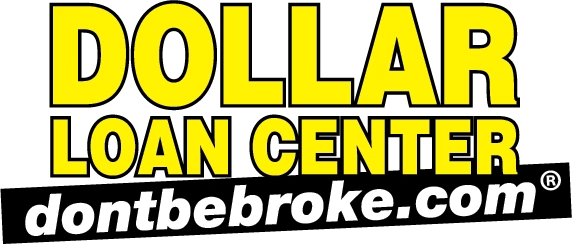Losing a job or finding yourself between careers can be a massive financial setback. When emergency expenses pop up, the idea of getting a personal loan might seem like your only option. But if you don’t have a traditional paycheck coming in, is it even possible?
The short answer is: Yes, it is possible, but it is challenging.
The truth is, lenders care less about your employment status and far more about your ability to repay the loan. If you can prove a reliable alternative source of income, a loan is still within your reach.
The Lender’s Mindset: It’s All About Repayment
Banks and financial institutions need assurance that they will get their money back. A steady paycheck is the easiest way to prove this, but it’s not the only way. When you apply for a loan without a job, the lender will heavily scrutinize two main factors:
-
Non-Employment Income Sources: Any consistent, verifiable income that isn’t a traditional salary.
-
Your Credit Profile: Your credit score and debt-to-income (DTI) ratio.
7 Alternative Income Sources Lenders Will Accept
If you’re currently unemployed, you’ll need to demonstrate income from one or more of these sources to qualify for a loan:
-
Government Benefits: This can include Social Security, disability benefits, or even unemployment benefits.
-
Retirement Income: Regular distributions from a pension, a 401(k), or an IRA. (Read More: [Internal Link: Early 401k Withdrawal Guide]).
-
Alimony or Child Support: Documented, court-ordered payments you receive.
-
Rental Income: Money you earn from tenants if you own a property.
-
Spousal or Partner Income: If you are applying for a joint loan or are in a community property state, your partner’s income can be considered.
-
Investments: Regular recurring interest or dividends from stocks, bonds, or savings accounts.
-
Gig or Freelance Income: Even if you don’t have a traditional job, verifiable income from side hustles, contract work, or a small business can count.
Improving Your Odds of Approval
If you’re applying for a loan without W-2 income, you need to look as financially responsible as possible. Here are three key strategies:
1. Find a Co-Signer
A co-signer is someone with a strong credit history and income who agrees to take responsibility for the loan if you default. This significantly lowers the risk for the lender and is one of the most effective ways to get approved when unemployed.
2. Offer Collateral (Secured Loans)
An unsecured loan is based solely on your creditworthiness. A secured loan requires you to put up an asset, like your car, home equity, or a savings account, as collateral. Because the lender can seize the asset if you fail to repay, secured loans are much easier to qualify for and often come with lower interest rates.
3. Boost Your Credit Score
A higher credit score demonstrates a history of responsible borrowing. If your score is low, take a few months to pay down existing debts and correct any errors on your credit report before applying. A strong credit score counterbalances the lack of employment.
What to Avoid: The High-Risk Pitfalls
When you’re desperate for cash, high-risk loans can look tempting, but they can be financially devastating. DO NOT turn to these if you can help it:
-
Payday Loans: These short-term loans have astronomical interest rates (often 400% APR or more) and can trap you in a cycle of debt.
-
Title Loans: Similar to a secured loan, but you put up your vehicle title. The risk of losing your car for a small loan is rarely worth it.
Smart Alternatives to Borrowing
Before you take on a loan, explore less expensive options first:
-
Talk to Creditors: If you’re struggling to pay bills, call your credit card company or utility provider. Many will offer a temporary hardship plan, reduced payments, or an extension.
-
Non-Profit Assistance: Local non-profits, community centers, and charities often provide financial assistance for rent, utilities, or food. Dial 2-1-1 (in the US) or search for similar local services to get connected.
-
401(k) Loan/Withdrawal: While generally not recommended, borrowing from or making a hardship withdrawal from your retirement account may be an option if you are facing a dire emergency. Be sure to understand the taxes and penalties involved.
Frequently Asked Questions (FAQ)
Q: What documentation will I need to provide?
A: You will need to provide documentation to prove your alternative income. This could include bank statements, award letters from the government (for SS or disability), 1099 forms (for freelance income), or tax returns showing rental income.
Q: Can I get an unsecured personal loan with no income?
A: It is extremely difficult to get an unsecured loan with no verifiable income whatsoever, even with excellent credit. Lenders need proof that you can make the monthly payments. If you have no income, focus on securing a loan with collateral or finding a co-signer.
Q: Will unemployment benefits count as income?
A: Yes, in many cases, unemployment benefits can be counted as income because they are recurring and verifiable. However, since unemployment benefits have a defined expiration date, some lenders may limit the term of the loan or require a stronger credit profile.
Q: Does a high credit score guarantee approval if I’m unemployed?
A: A high credit score (e.g., 750+) is a massive help, but it is not a guarantee. Lenders still need to see a source of cash flow (income) to pay the debt. A high score suggests reliability, but the income source proves ability.
The Bottom Line
A lack of a “job” doesn’t mean you can’t get a loan, but a lack of verifiable income does. If you can clearly document a reliable source of funds and have a solid credit history, you still have options. Just be sure to compare loan terms carefully and ensure the monthly payment fits your current financial reality.


